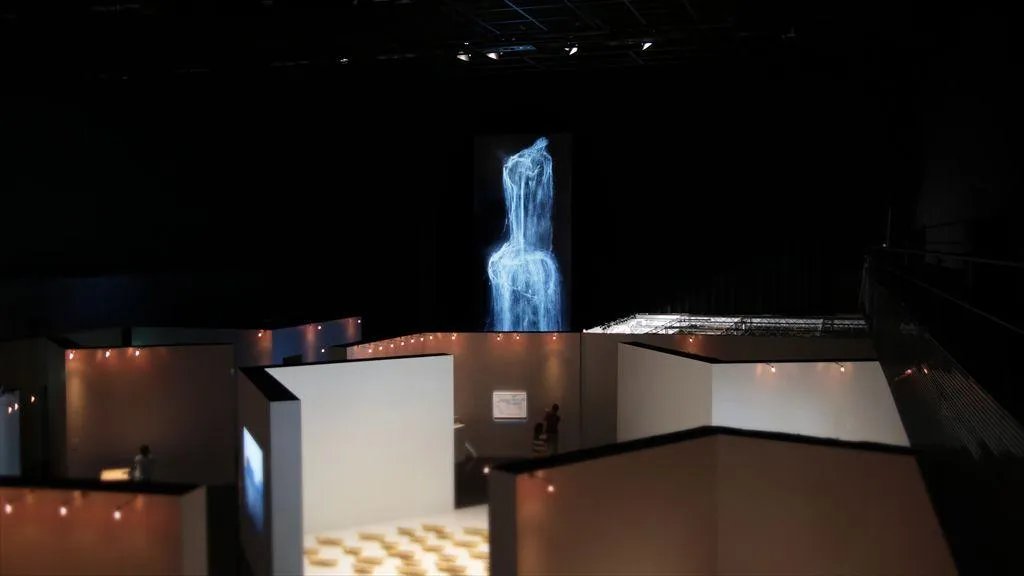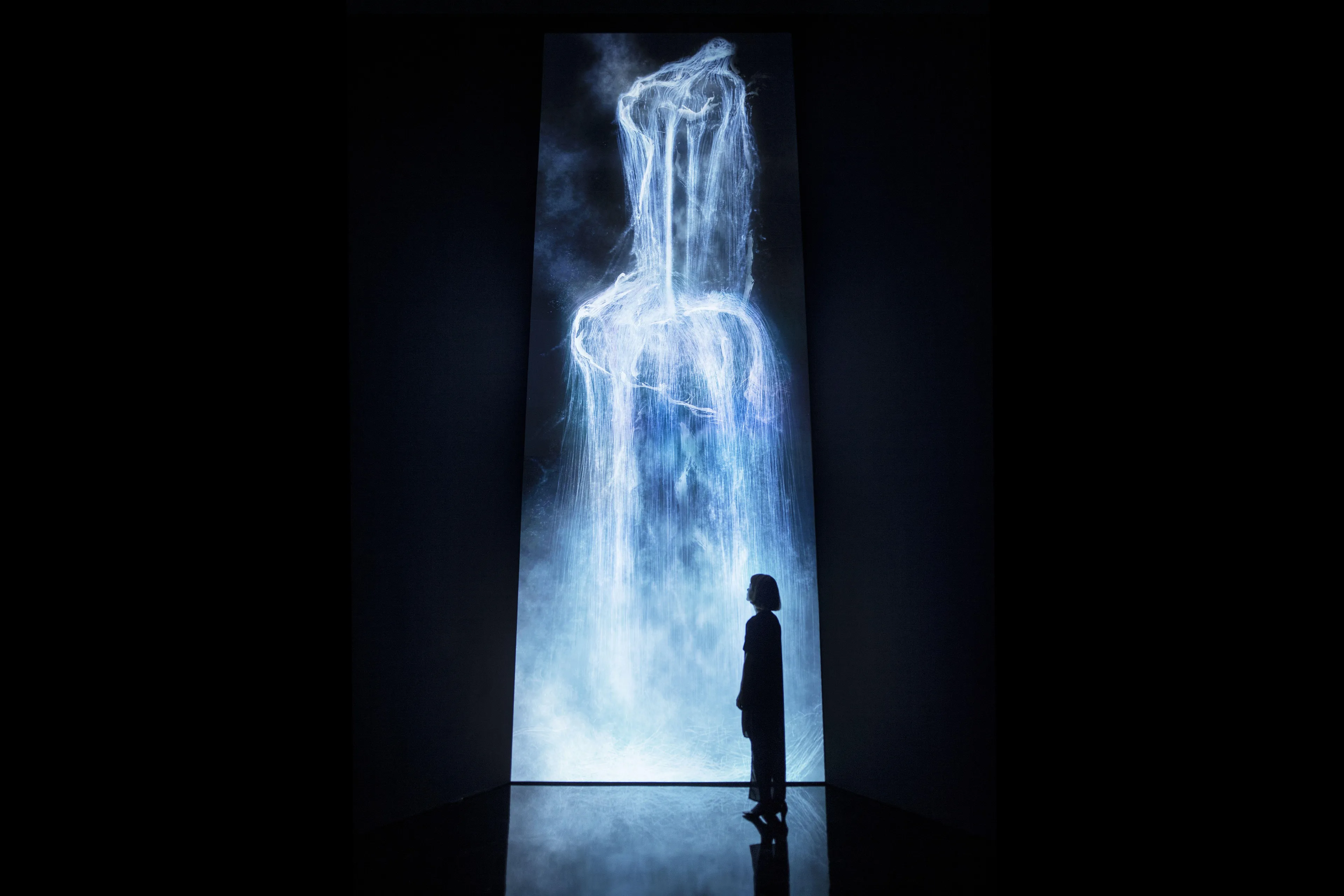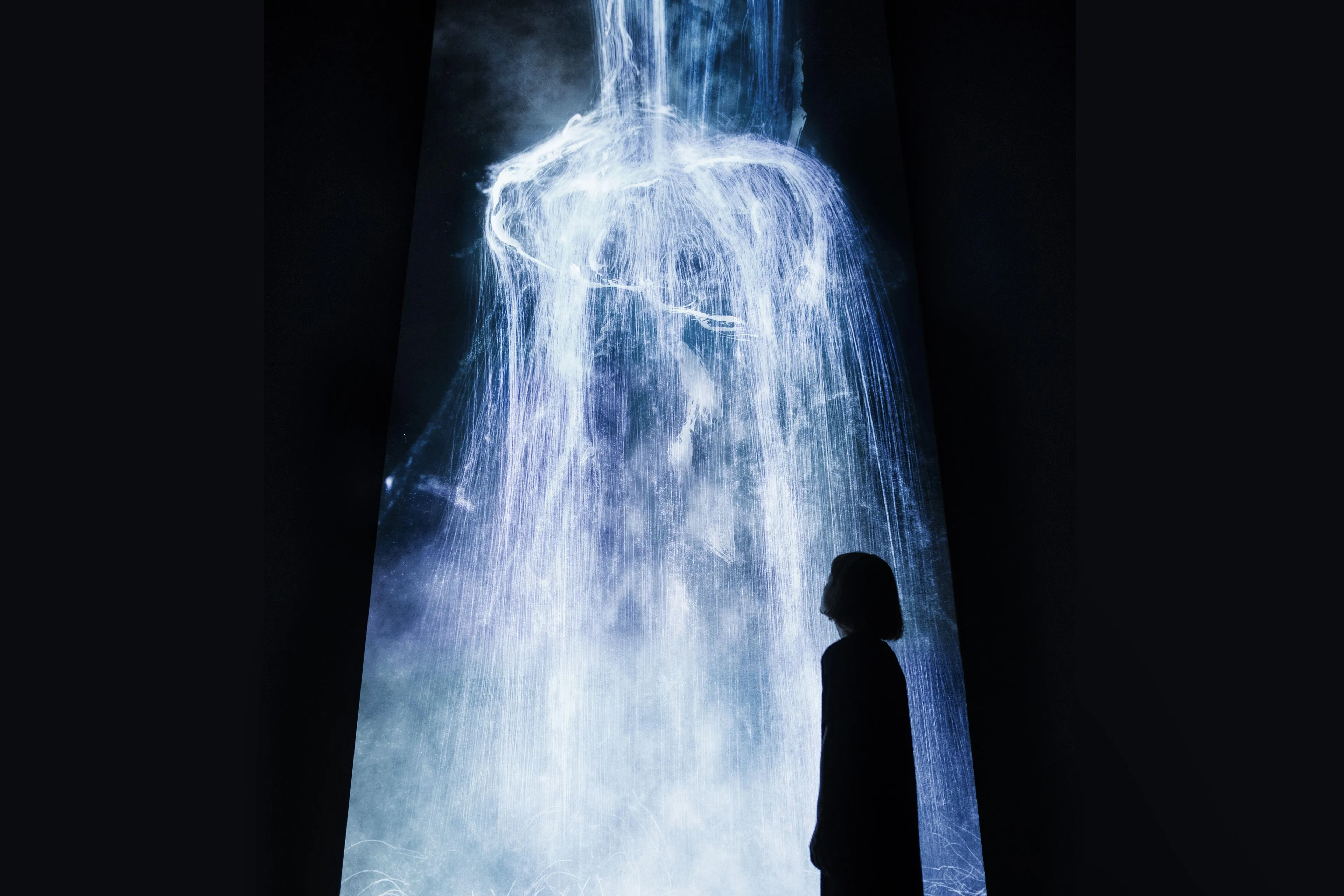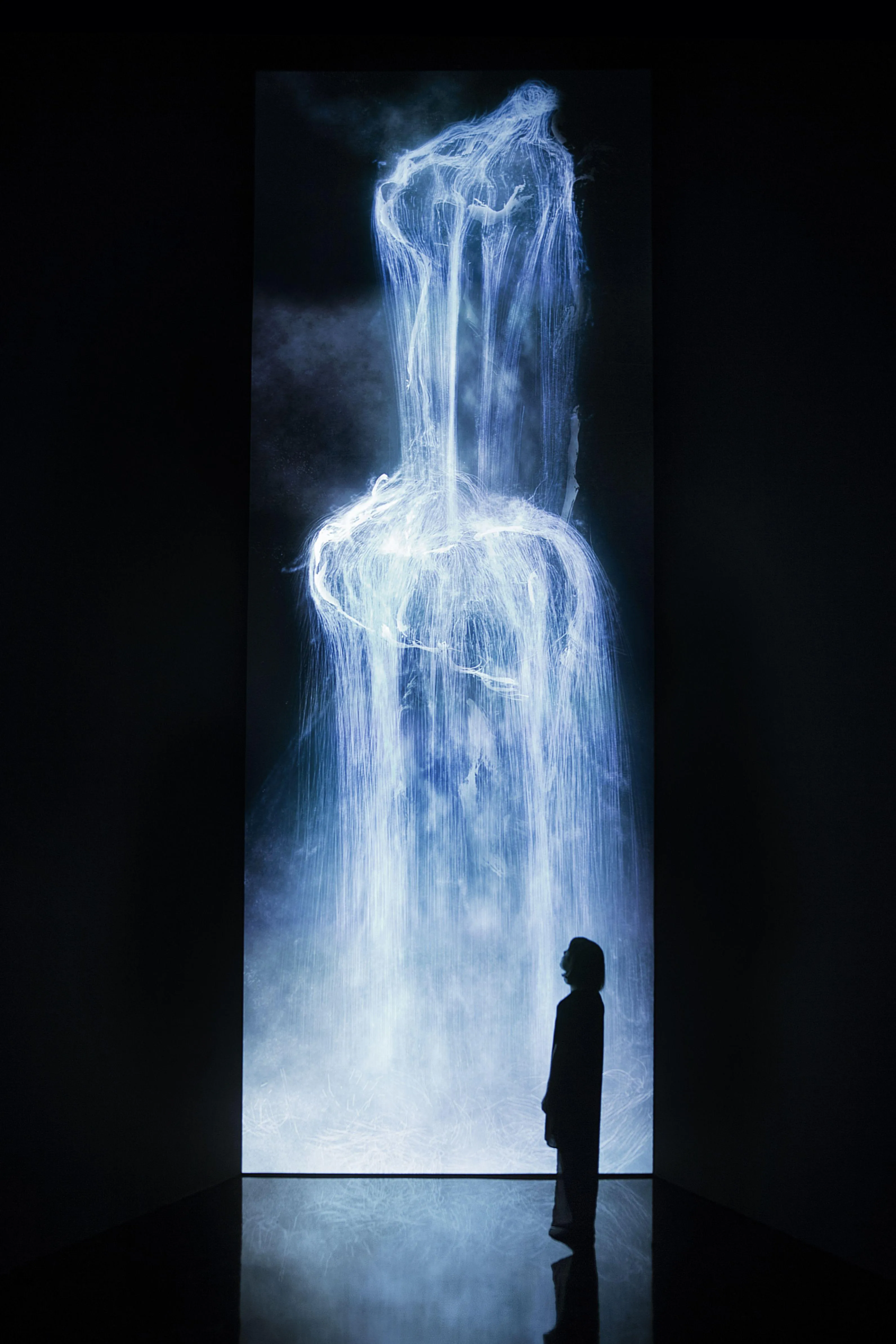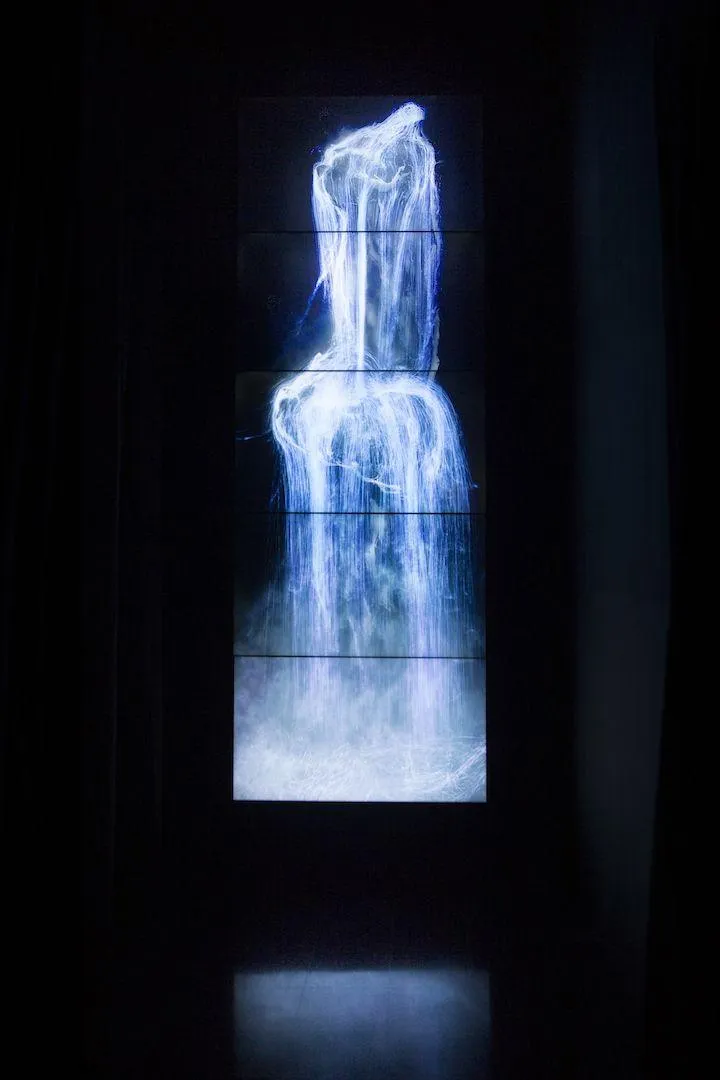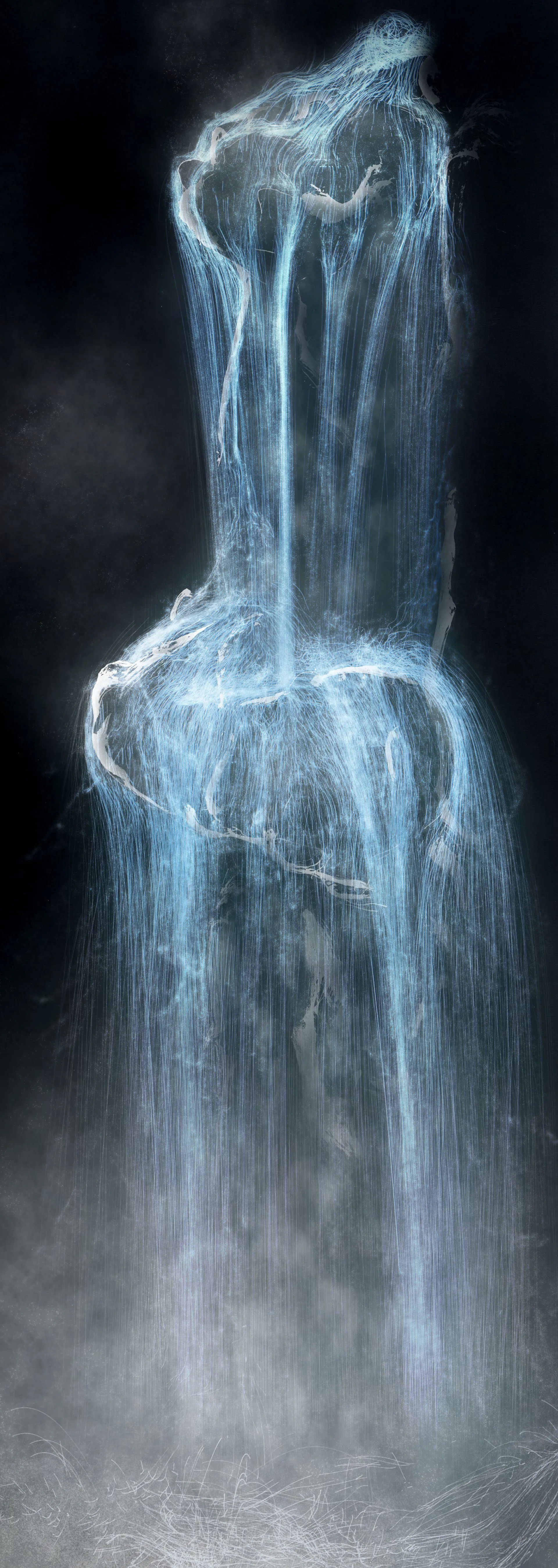

Universe of Water Particles
teamLab, 2013, Digital Work, 5 channels, Continuous Loop
Universe of Water Particles is a virtual waterfall created in a virtual 3-D space using teamLab’s concept of ultrasubjective space, a term that refers to the depiction of space found in premodern Japanese painting.
Computer-generated water consisting of hundreds of thousands of water particles is virtually poured onto a virtually sculpted rock. The computer calculates the movement of the particles to produce a simulation of water that flows in accordance with the laws of physics. Lines are drawn in relation to a selection of 0.1% of the particles. The sinuousness of the lines depends on the overall interaction of the water particles.
In premodern Japanese painting, oceans, rivers, and other bodies of water were expressed using a series of lines. These lines give the impression of movement and life, as though water was a living entity. This form of expression leads us to explore why premodern people sensed life in rivers and oceans. Universe of Water Particles fuses the objective world of today’s knowledge with the subjective world of premodern people.
When viewing this artwork, regardless of the fact that the waterfall is a reproduction of physical phenomena, it can be possible to feel a sense of life in the collection of lines.
If, when viewing this artwork—as opposed to a video of a waterfall shot with a video camera—people feel the barrier between themselves and the waterfall dissolve, they become immersed in the work as if the waterfall is luring them in. Perhaps we can find a connection to the way premodern Japanese people perceived the world and consequently behaved towards it.
If we regard ourselves as part of nature, and consider nature as something not just to be observed, it is possible to feel that there is no boundary between ourselves and nature.
Computer-generated water consisting of hundreds of thousands of water particles is virtually poured onto a virtually sculpted rock. The computer calculates the movement of the particles to produce a simulation of water that flows in accordance with the laws of physics. Lines are drawn in relation to a selection of 0.1% of the particles. The sinuousness of the lines depends on the overall interaction of the water particles.
In premodern Japanese painting, oceans, rivers, and other bodies of water were expressed using a series of lines. These lines give the impression of movement and life, as though water was a living entity. This form of expression leads us to explore why premodern people sensed life in rivers and oceans. Universe of Water Particles fuses the objective world of today’s knowledge with the subjective world of premodern people.
When viewing this artwork, regardless of the fact that the waterfall is a reproduction of physical phenomena, it can be possible to feel a sense of life in the collection of lines.
If, when viewing this artwork—as opposed to a video of a waterfall shot with a video camera—people feel the barrier between themselves and the waterfall dissolve, they become immersed in the work as if the waterfall is luring them in. Perhaps we can find a connection to the way premodern Japanese people perceived the world and consequently behaved towards it.
If we regard ourselves as part of nature, and consider nature as something not just to be observed, it is possible to feel that there is no boundary between ourselves and nature.
